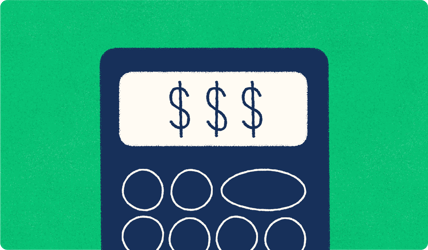The FCC recently released new regulations that affect automated calling and texting services like Call-Em-All. I previously wrote that we feel the current regulations are doing a pretty good job of discouraging spam robocalls. My next two posts will highlight the good and the bad of the FCC’s latest work. Today, we start with the bad.
My iPhone, the autodialer
According to the TCPA (Telephone Consumer Protection Act of 1991), an autodialer or “automatic telephone dialing system” is equipment with the capacity to store or produce numbers through random/sequential number generators; and then make calls to those numbers. That technology might have been difficult to build when the laws were first written, almost 25 years ago. In 2015, pretty much any device - even a smartphone - can be used for auto-dialing. This definition is so absurd that FCC commissioners Michael O'Rielly and Ajit Pai address it in their formal statements. Commissioner O'Rielly, stated that, “the FCC has to use a rotary phone as an example of a technology that would not be covered because the modifications needed to make it an autodialer would be too extensive.” Commissioner Pai added, “After this Order, each and every smartphone, tablet, VoIP phone, calling app, texting app—pretty much any phone that’s not a ‘rotary-dial phone’—will be an automatic telephone dialing system.”
A Phone Call is a Phone Call
Current regulations treat landlines and cell phones differently in the matter of automated calling. We believe that good regulations would treat landlines and cellphones equally, especially when 90 percent of American adults use cell phones and landlines are quickly becoming extinct. A phone call is an interrupting activity because it requires you to address it immediately. Whether that interruption occurs on your cell phone or landline doesn’t matter - it still forces you to give it your attention. As such, we believe that future policy should simply address automated calling as a whole.
Wrong Number? Call Your Attorney!
People change numbers or switch services. That’s a fact of life. When that happens, numbers are recycled and reassigned to a new person. This causes problems when the new owner receives calls intended for the previous owner. Under the new regulations, organizations must stop calling a number after it is reassigned and are only given a one call buffer. However, the call recipient is not obligated to actually opt out. Further, what if that one call goes to voicemail? How is an automated calling system supposed to know that the voicemail wasn’t the intended recipient of the call?
We applaud the FCC for mandating that call recipients can opt out by “any reasonable means,” but by not mandating that the unintended recipient actually opt out, the FCC may have opened the floodgates for TCPA plaintiff’s attorneys. There are already plenty of cases where call recipients have intentionally avoided opting out of calls so that they can threaten companies with lawsuits. These aren’t spammers we’re talking about, they are legitimate organizations sending informational messages to a phone number that was reassigned.
The FCC also asserts that a national database of reassigned numbers would allow a company to know which numbers they can call and which they can’t. This might sound good, but quickly falls apart when you realize that it just doesn’t work. The organization making the call would have to know if they received that phone number before or after the number was reassigned. Because very few organizations have a list of phone numbers along with the date that the number was collected, this FCC assertion is impractical.
Recommended Reading
If you’d like to learn more about the FCC’s recent rulings (or, if you’re having trouble falling asleep), the links at the top of this page might help. I particularly recommend the responses from Commissioners O’Rielly and Pai:
https://www.fcc.gov/document/fcc-strengthens-consumer-protections-against-unwanted-calls-and-texts












